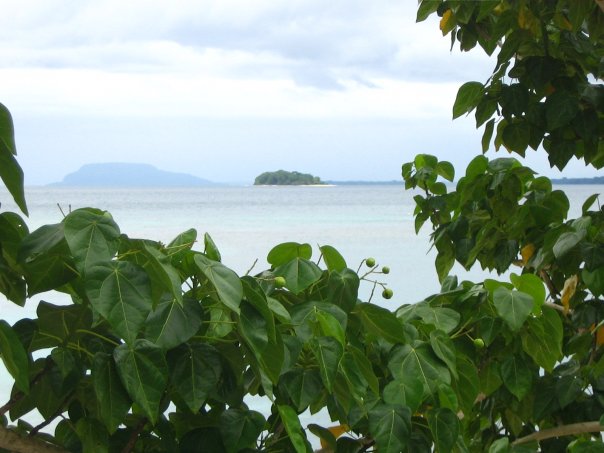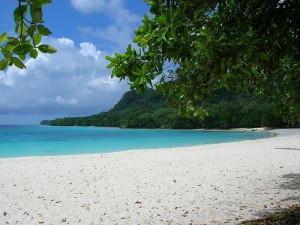Recent sales of long-term leases of islands in Vanuatu have sparked a debate over whether foreign development dollars are promoting corruption and a lack of respect for traditional values.
When a local church group on the island of Espiritu Santo donated a small, mostly undeveloped island to the government of Vanuatu, they anticipated that it would be part of a conservation program to preserve its unique ecosystem for future generations. The Seventh-Day Adventists, a popular religion brought by missionaries to this far-flung South Pacific archipelago, gave Turtle Island over to the Ni-Van government in 1983. The group’s pastor was shocked to discover last week, however, that a lease of the island has apparently been sold to a developer for US $400,000.
The island in question is a 2-acre speck of land off the coast of Espiritu Santo, the country’s largest, but little-developed island. A few remote outposts are scattered around Santo; the “big city” is Luganville, with a population of just over 13,000. When passing through, the town seems like nothing more than a handful of homes and some Australian or Chinese-run businesses, but the roads are wide and well-maintained, and it serves as one of the country’s main ports for the shipment of commodities like copra, cocoa, and Santo’s famous beef, said to rival, if not exceed, that of Kobe, Japan.
Tourism has recently become an important part of Santo’s economy, most notably with the establishment of Ratua Private Island, a luxurious eco-friendly resort with celebrity clientele. Turtle Island is a short boat ride from Ratua: the resort offers picnics and sunset cruises to the tiny isle. At the moment, nothing much can be found there that shows human usage, aside from a few unmaintained shelters, a fire pit, and along the forest paths, a few trees thick with carved graffiti.
What the purchaser of the island’s lease intends to do with Turtle Island is yet unknown: Seventh-Day Adventist Pastor Damien Rice said in a local news report that he only found out about the sale while looking at properties being advertised by a local realtor. He expressed his disappointment that the government chose to allow development on Turtle Island, and that it was part of a rapidly dwindling number of natural places open for public enjoyment.
“It’s a place that the people of those islands have recognised as somewhere where they can go and visit, spend the day, enjoy time there with family and community,” said Pastor Rice. “And there are becoming fewer places that the public can go access and enjoy. Some of these kinds of things can have a detrimental and negative impact on the quality of life for people, and two, for a nation whose people are so closely tied to the sea this really isolates them from a source of their identity.”
The concerns generated by the privatization of Turtle Island have also been seen in other recent Vanuatuan real estate sales: a local paper reported that Reef Island, in the far-northern province of Torba, was sold on a 75-year lease without the knowledge of the customary landowners, who cited corruption within the Lands Department as why the agreement was allowed.
The island is seen as highly important for the entire province, as fishing within its rich waters has historically provided for the whole community. The two men claiming ownership, Mr. David and Mr. Istapas, are currently seeking legal advice and have warned the purchasers to not proceed with any development.
In Vanuatu, it seems, the lure of foreign investment is changing the economic landscape, creating an environment where, for some, a traditional respect for the land is superseded by financial motives, both on the part of the government and unscrupulous citizens. Foreign purchasers are advised to be wary: both Turtle Island and Reef Island were heavily marketed on international websites as legitimate leasehold properties, and recourse is difficult to obtain for investors who may have been involved in fraudulent transactions. In an undeveloped and poor nation like Vanuatu, the only law of the land is caveat emptor.
Read more about these island controversies:




